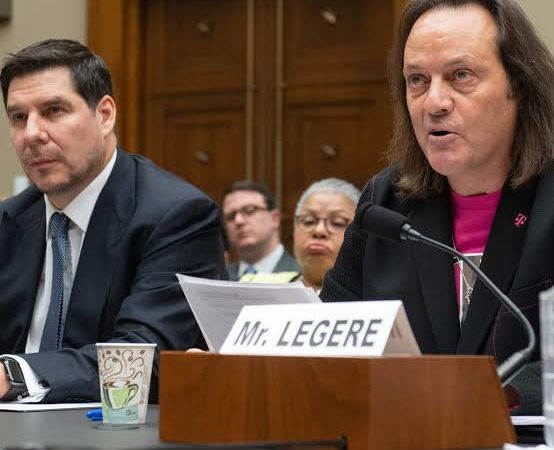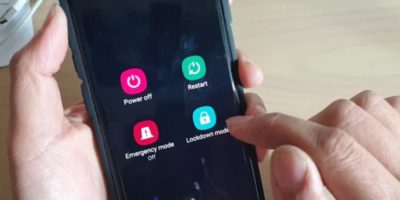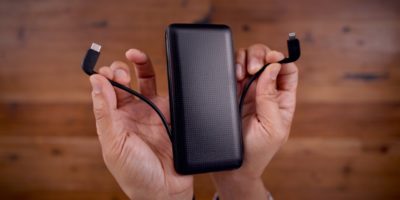Disclaimer: The views, suggestions, and opinions expressed here are the sole responsibility of the experts. No Pacific Daily journalist was involved in the writing and production of this article.
John Legere says : T-Mobile attempted and neglected to converge with Dish years back

Dish is currently expected to purchase stripped resources if the T-Mobile–Sprint merger clears
T-Mobile needed to converge with Dish in 2015, T-Mobile CEO John Legere told a government court yesterday, yet Dish shot the arrangement down over worries that T-Mobile would “disintegrate.”
The subtleties, detailed by CNET, affirm stories from 2015 about a potential tie-up between the two organizations and clarifies why the arrangement never became. A merger would have given T-Mobile access to a trove of significant range that Dish has since a long time ago clutched, however not yet put to use, alongside a satellite TV business.
Legere was in court affirming as a major aspect of a claim brought by different state lawyers general who are endeavoring to square T-Mobile’s merger with Sprint. Legal counselors for the lawyers general asked Legere for what valid reason T-Mobile needed to converge with Sprint, an immediate adversary, instead of Dish, which doesn’t presently offer cell administration, as per CNET. Legere apparently said that they had prescribed that plan to T-Mobile’s board in 2015, with the objective of “un-carriering” Dish’s TV business, just to be shot somewhere around Dish.
DISH HAS NOW AGREED TO COMPETE WITH T-MOBILE BY PURCHASING SPRINT ASSETS
For T-Mobile, there would have been significant upsides to the arrangement. Dish has an enormous swath of range “roughly the size of Verizon’s” that could be utilized for LTE, Legere is accounted for as saying.
T-Mobile would wind up paying $8 billion to gain comparative range two years after the fact trying to put its system keeping pace with AT&T and Verizon. Dish’s TV business additionally would have permitted T-Mobile to enhance and secure supporters, much in the way that AT&T and Verizon both offer TV administration.
Be that as it may, Dish prime supporter Charlie Ergen dreaded T-Mobile’s stock was going to drop, tumbling to $20 from the $25 it was at during the hour of exchanges, debasing the procurement, as per CNET. T-Mobile is as of now exchanging at around $75 per share.
The arrangement self-destructed, and Dish avoided the remote market. In any event, it has as of not long ago: the organization has consented to buy Boost Mobile, Virgin Mobile, and more from Sprint ought to be merger be endorsed.
The Department of Justice required those resources for be stripped, just as for understandings to be set up letting Dish piggyback on T-Mobile’s system for some time as a major aspect of a consent to support the merger.
The merger’s last obstacle is this preliminary. Lawyers general from 14 states and the District of Columbia are suing to hinder the arrangement over worries that it would constrain rivalry in the remote business.
In the event that the merger is endorsed, Sprint will vanish, and Dish should endeavor to have its spot as a significant remote contender. On the off chance that the merger is blocked, Dish would need to locate another arrangement to break into the business.
In 2017, Legere anticipated that Dish’s end as an autonomous organization was close. “I’d like to officially declare that Dish will die this year,” they said. “By the end of 2017, Dish will not be a standalone entity.” Clearly, eyes are on Dish’s range possessions. The inquiry is: which organization — Dish or some acquirer — will wind up utilizing them?
Christian Bakern is 21 young writer and designer with strong passion. He usually hangs out in Twitter tweeting writing related links regularly and he is a best writer. Currently he contributes to Texas Times as a editor.
Related News

The most effective method to empower lockdown mode on your Samsung Galaxy telephone
Spread the loveBiometrics give an astounding method to make sure about our telephones and accessRead More

The most effective method to set up hourly updates on iPhone and Apple Watch to wash peoples hands and quit contacting peoples face
Spread the loveWith the coronavirus flare-up getting progressively genuine in the US and around theRead More